Independent repairers are under pressure as OEMs are aggressively looking to grow with all-makes servicing to counteract recent years of decline in new car sales.
When many also have relationships with large fleet providers this is seen as a way to pull drivers back into franchised workshops, according to some industry observers.
It means that independent garages must get better at marketing and managing their customer relationships, at the same time as planning ways to generate incremental revenue to combat the future decline diesel and petrol engine work.
Independent repairers are under pressure as OEMs are aggressively looking to grow with all-makes servicing to counteract recent years of decline in new car sales.
When many also have relationships with large fleet providers this is seen as a way to pull drivers back into franchised workshops, according to some industry observers.
It means that independent garages must get better at marketing and managing their customer relationships, at the same time as planning ways to generate incremental revenue to combat the future decline diesel and petrol engine work.
“How do you let your local customer base know what you do as a workshop? MOT is a necessity, as is a service which most people get done because the service light is annoying them. But when we go into the EV world, how do you let your customers know you work on EVs?” said Anthony McAteer, group commercial director of LKQ Euro Car Parts during a talk at the UK Garage and Bodyshop Event this month.
He warned that many households with an EV will also have an ICE vehicle still, and if they’re bringing that ICE vehicle to a local garage, but they then find another workshop or franchised dealer for their EV, the local garage could lose their ICE vehicle business.
“So it’s really important to be looking forward into 2026, 2027, so that you can make sure that consumer journey evolves within your business.
“The minute we’ve seen segmentation between EV and ICE vehicles it’s the ICE garage that loses because people want to go to one place.”
Andy Crook, a garage owner and research engineer at Atomic Success, highlighted that the battle between franchised dealers and independent garages is hotting up because of the lower levels of new cars sold in recent years. “The main dealers come after your work because the market share is reduced. If there are more new vehicles being sold they’ve got all the work they can cope with so don’t care about (older cars).”
His message was that workshop owners must observe what is happening in the new car market because it will impact their business a few years down the line.
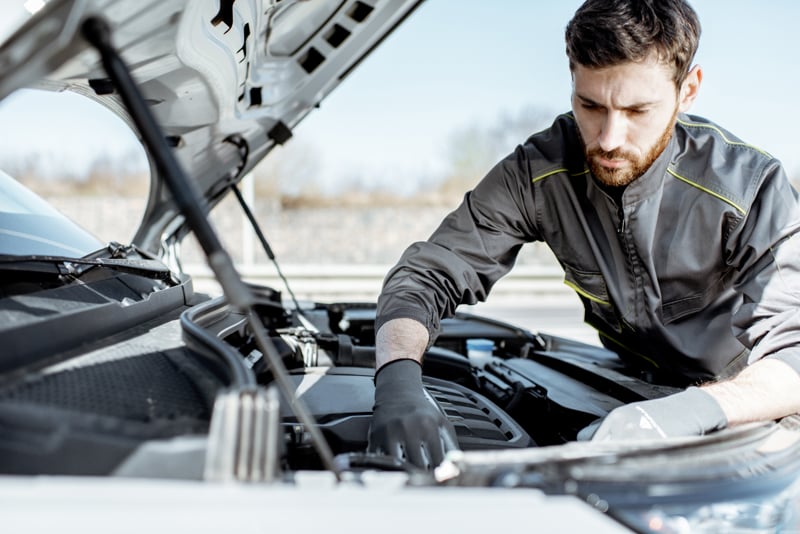 A caveat was to not be totally distracted by talk about electric vehicles yet. In 2023, despite growth in EV sales, 83% of all the new cars sold had an engine. Workshops will be working on engines for many years to come.
A caveat was to not be totally distracted by talk about electric vehicles yet. In 2023, despite growth in EV sales, 83% of all the new cars sold had an engine. Workshops will be working on engines for many years to come.
But the vast majority of those engines will be petrol units. Since 2016 there has been an 88% decline in new diesel car sales. That does pose a challenge for workshops, as their revenues from repairing and maintaining diesel cars is significantly higher than petrol cars.
Analysis of more than £50 million worth of invoices from across independent workshops has found that diesel cars account for 54% of jobs currently, petrols account for 42% and hybrids just over 2%. However, diesels account for 62% of the revenue.
Revenue hit by diesel decline
“We’re in business to make money, so the demise of the diesel-engined passenger car or van should worry us, because it really is important. The average diesel invoice value is 37% higher than the average petrol or hybrid value, and 57% higher than the average EV invoice.”
As the number of diesel cars declines, so will the profitable repair work such as on emissions-control systems. His worst case prediction for five years from now is a 44% reduction in diesel work for independent workshops, which would create a 16% hit to revenues if a workshop still maintained the same volume of overall work.
By 2034, workshops’ diesel work could have fallen 96% creating a 36% drop in overall revenue. A medium-sized independent, with three ramps, would see £108,000 wiped off its bottom line.
“This is why you need to look at this continuously and amend your business strategies accordingly,” he said. Workshops need to consider where they want to be in three, five and 10 years, and have a people policy and marketing policy for each period, so they have the trained staff, the equipment and the local reputation to attract more car owners. Whether an EV or hybrid, cars will still require brakes, tyres and suspension work, he said.
“Your customers all want someone they know, like and trust to fix their car now. In the future they’ll want someone they know, like and trust to fix their car. Make sure your marketing reflects that.”
Workshops have been urged to be open-minded and keen-eyed to spot incremental revenue opportunities in the years ahead as hybridisation, electrification and in-car connectivity become more prevalent.
Simple upsells work
The threat is that some of the traditional revenue streams, such as oil changes and diesel repairs, will reduce significantly for both franchised and independent workshops. Meanwhile, other opportunities emerge, such as batteries, suspension parts and tyres due to cars becoming heavier and having more torque.
Prashant Chopra, managing director of Autogem, a supplier to workshops, said: “There is so much going on in the vehicle parc, and you really need to think about what that impact is going to be.”
Add to that the trend of more consumers valuing convenience highly, then the proactive workshop should find opportunities, no matter how small. A simple upsell is tyre sealant. Many cars are now sold without spare wheels and instead have a canister of tyre sealant in the boot. But those sealants have an expiry date on them.
Workshops should be checking the dates on the canisters in customers’ cars and selling them a replacement for expired ones, or noting any looming expiry dates for future business.
Another opportunity is in TPMS (tyre pressure monitoring system) sensors in wheel valves. All cars registered since 2014 have had TPMS, and data shows that these battery-powered sensors typically begin to fail after five or more years, he said. With four sensors on every car, any jobs changing tyres should be considering whether the valve stem sensors also require replacing.
Such proactive measures, to prevent on-road calamities, can show the customer that the business cares
Chopra added: “People are craving positive experiences. So I think that, as workshops, we have to make sure we are giving the most positive experience we can.”
MOT regime changes
Peter Lawton, an aftermarket expert from the SMMT, talked about the latest insights around the MOT, which following consultation the DfT has agreed to remain as a year-three first test and then annual tests.
He said the DfT is focused on how the MOT test may need to change in future, to encompass the latest technology, particularly ADAS (advanced driver assistance systems). Progressively, more and more individual ADAS elements are being mandated, but the big question for DfT is whether it would be reasonable for MOT tests to include all the systems that are fitted even if some weren’t mandatory.
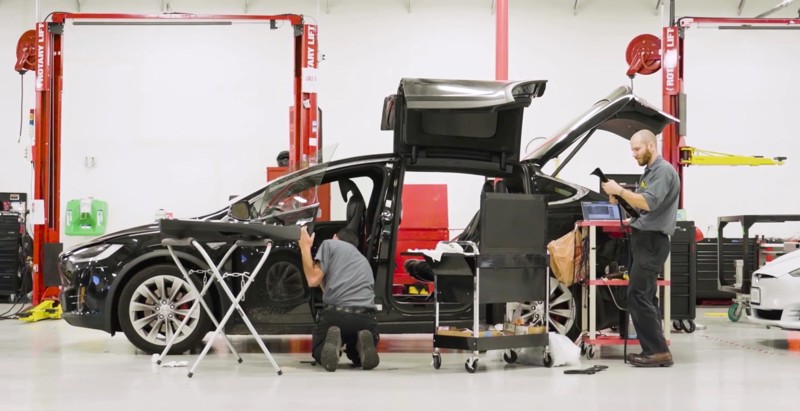 Off the back of workshops the SMMT held with DfT and other third parties, there will be a pilot scheme to gather data from workshops as they see vehicles for an MOT about how often there are defects with ADAS and sensors. The data will help DfT to consider the impact of sensor issues in operations and to shape further explorations.
Off the back of workshops the SMMT held with DfT and other third parties, there will be a pilot scheme to gather data from workshops as they see vehicles for an MOT about how often there are defects with ADAS and sensors. The data will help DfT to consider the impact of sensor issues in operations and to shape further explorations.
The traditional MOT station and current MOT regime is probably not best placed to test ADAS and EV systems, he said, which is why the subject is being explored.
Emerging DVSA data about electric vehicles, albeit from a small cohort, shows that at the first MOT test at three years-old more have tyre issues than with ICE cars. Early indications suggest suspension units on EVs could also be more problematic as they age, due to the higher weight of the vehicle.
“The idea that electric vehicles are simpler so you don’t need to have them checked as often, we were able to say that is not the case.”
Currently the Government believes the MOT test is “mostly sufficient” even for electric vehicles, he said. However, there are questions the DfT will consider for the future, such as should an EV charging cable be tested, and should regenerative braking and battery capacity be included.
Login to continue reading
Or register with AM-online to keep up to date with the latest UK automotive retail industry news and insight.

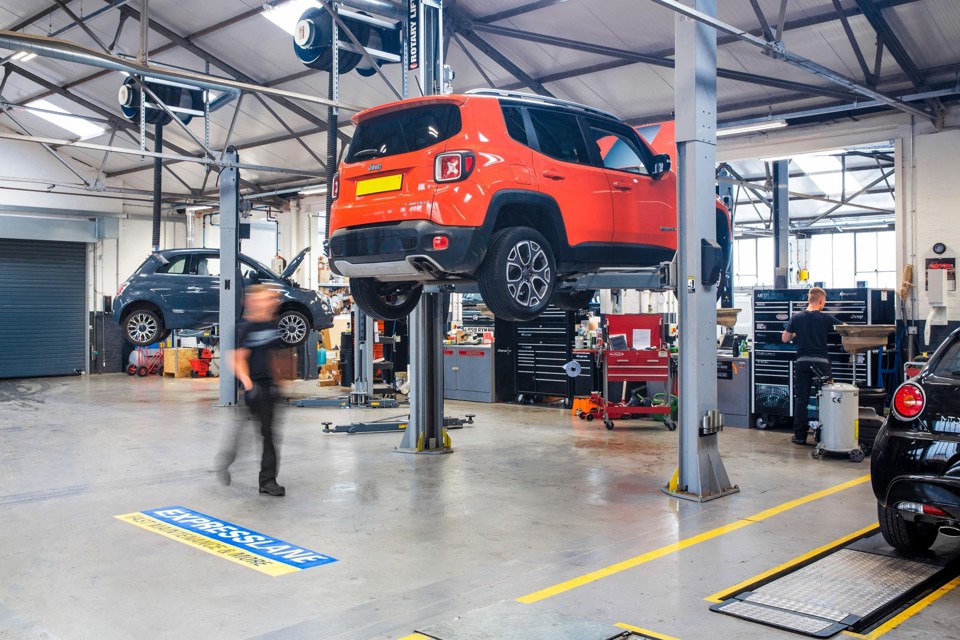




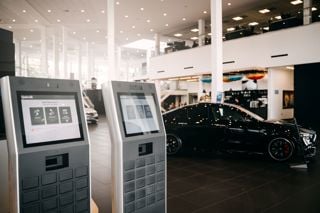
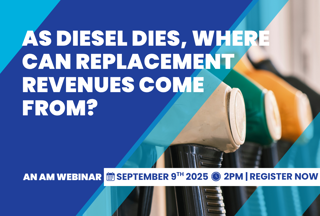

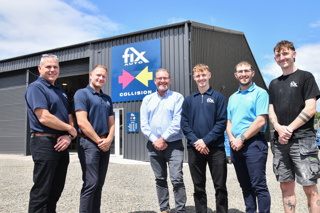













Login to comment
Comments
No comments have been made yet.